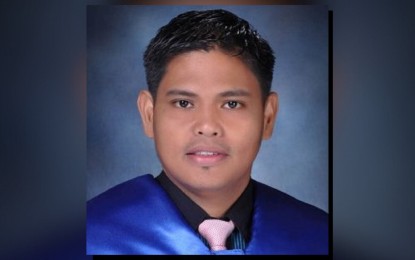
MANILA – The revival of the peace talks between the Philippine government and the National Democratic Front of the Philippines (NDFP) could boost investor confidence, a political analyst said on Wednesday.
During the Bagong Pilipinas Ngayon interview over PTV-4, Dr. Froilan Calilung, director of the Local Government Development Institute, said since the communist insurgency discourages foreign investments, the administration’s peace initiative with the NDFP would restore investor confidence and bring in economic development.
Last month, the Philippine government and the NDFP agreed to a “principled and peaceful resolution of the armed conflict” through the Oslo Joint Communique.
“We definitely need these FDIs (foreign direct investments) in order to pump-prime further the economy. So, I believe na itong mga usapin na ito ay magpapanumbalik doon sa kumpiyansa ng mga mamumuhunan na maglagak ng kanilang pera at ng kanilang capital sa ating bansa na siya namang magiging mahalaga rin na pagkukuhanan natin ng mga oportunidad para sa ating mga kababayan, lalung-lalo na iyong mga magbabalik-loob sa ating pamahalaan (So, I think these talks would restore the confidence of the investors to put their money and capital in the country, which would bring in opportunities for our countrymen, especially those [rebels] who would return to the fold of law),” Calilung said.
He added that granting amnesty to rebels and insurgents is just the first step “towards going back to the fold of the government and bringing them back into the fold of the law”.
President Ferdinand R. Marcos Jr. has issued Amnesty Proclamations 403, 404, 405, and 406, which cover members of the Rebolusyonaryong Partido ng Manggagawa ng Pilipinas/Revolutionary Proletarian Army/Alex Boncayao Brigade (RPMP/RPA/ABB), Communist Party of the Philippines – New People’s Army – National Democratic Front (CPP-NPA-NDF), Moro Islamic Liberation Front (MILF), and Moro National Liberation Front (MNLF), respectively.
Calilung also highlighted that the peace talks will be crucial to address threats against internal security, particularly insurgency, to boost the country’s external territorial defense, especially with the escalating tension in the West Philippine Sea.
“Mahalaga na matuldukan na natin (It is important that we put an end) once and for all itong insurhensiya na ito (to this insurgency) that has been going on and raging on for more than 50 years. And in fact, this is one of the longest, if I’m not mistaken, not only in Asia but in the whole world,” Calilung said.
He said President Marcos’ decision to restart peace talks with the NDFP shows the government’s sincerity and “meaningful” commitment towards the attainment of long-lasting peace.
“Right now, I believe that the government is in a better vantage point to actually take hold of this position dahil nga mahina na po talaga (because of their [rebels] weakened strength). I think, if I’m not mistaken, nasa dalawanlibo na lang yata ang ating mga miyembro ng kanilang kilusan (there are only 2,000 members in their movement),” he said.
Presidential Adviser on Peace, Reconciliation and Unity Secretary Carlito Galvez Jr. earlier said the granting of amnesty to various rebel groups is a strong manifestation of President Marcos’ steadfast commitment to realize national reconciliation and unity among Filipinos.
During the joint hearing of the House Committees on Justice and National Defense and Security on Tuesday, Galvez said the granting of amnesty is an integral part of the comprehensive peace process.
He thanked the House for deliberating on resolutions concurring with the President’s amnesty proclamations, pointing out that these demonstrate the Chamber’s support for the administration’s peace, reconciliation, and unity agenda.
The two House panels approved House Concurrent Resolution (HCR) Nos. 19, 20, 21, and 22, which sought to concur with the amnesty proclamations. — Filane Mikee Cervantes (PNA)
*****
Credit belongs to: www.pna.gov.ph
 Atin Ito First Filipino Community Newspaper in Ontario
Atin Ito First Filipino Community Newspaper in Ontario






